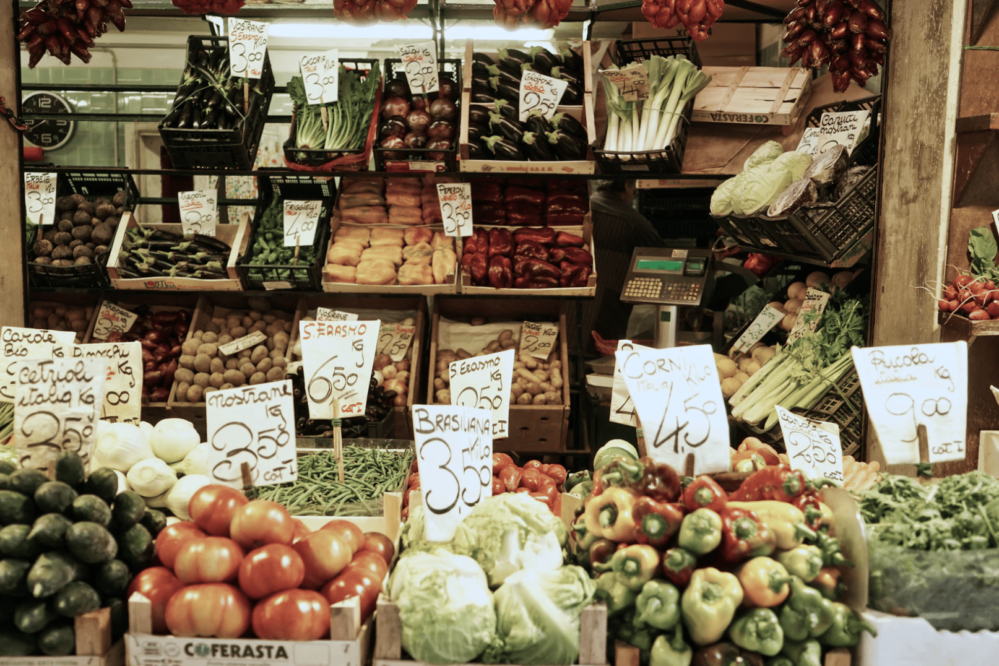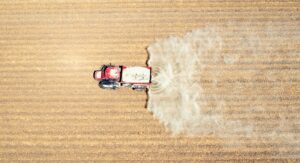The Covid-19 pandemic has rocked the local food movement in the US. Some farmers who relied on wholesale accounts found themselves with a plethora of food and nowhere to sell it.
Others couldn’t keep up with demand fast enough as consumers faced with empty supermarket shelves sought out alternative sources.
Launched in 2015, Forager is a digital procurement platform for local food that aims to connect wholesale and retail buyers with independent farmers, meat and dairy purveyors, and artisanal grocery suppliers. It launched commercially in 2017.
But the Portland, Maine-based startup was dedicated to growing local food economies well before the pandemic struck.
“Food is one of the pillars of culture and the largest industry in the world, but it has been mismanaged and abused for several generations across America. We are committed to rebuilding our food system in a way that sustains our future,” founder and executive chairman David Stone tells AFN.
Stone started Forager after selling his previous startup, CashStar, for $175 million. Between roles, he spent several months traveling 24,000 miles across 12 countries. It was during this time he came face-to-face with the many pain points plaguing the local food movement.
As a serial entrepreneur, Stone describes the local fresh food supply chain as “the most complex” vertical he has ever come across.
“Building a reliable network of quality, small, independent producers who can provide enough products for wholesalers and retailers is a Herculean task – but one that has so much significance and impact, it’s worth fighting for.”
Read on to learn more from Stone about how Forager is hoping to digitalize the local food movement.
AFN: What is your product?
David Stone: Forager is a digital platform designed to make local sourcing a no-brainer. Today, sourcing local food as a wholesaler or retailer is complex manually, and very difficult. Forager digitally connects grocers and others in real-time with farms [via] a B2B procurement platform and marketplace, so that they can discover, purchase, receive, and pay all through an elegant cloud-based system.
Based on a case study we conducted, a grocer told us that with Forager a single buyer could save up to 20 hours a week in peak season when purchasing from small farms. It’s also much easier for farmers, ranchers, and supplies to get their products online and made readily available for purchase by grocers and distributors, and others. Increasingly, we are also introducing local suppliers to new buyers, thereby expanding their businesses.
Is there a lot of competition for what you are trying to do?
Not as of yet. There were a handful of ventures who built marketplaces focused on restaurants who all failed several years ago. There are a few new-ish entrants and intensifying competition, particularly in the consumer packaged goods and shelf-stable sector, promoting marketplaces for trying and sourcing products. But most aren’t focused on local – and the few that are, are not doing produce as it’s very challenging.
What are some of the major challenges you’ve faced – and how did you overcome them?
The local food economy is especially important as we begin to rebuild the economy after Covid-19. Many of our independent small farms suffered from the loss of their restaurant business, which ultimately affected nearly half of all farms.
Grocers, who are our primary target, stopped taking meetings and calls as they were overwhelmed with having to adapt and change on a dime [for issues like] out of stocks, social distancing, online ordering, curbside pick up, and so on. That meant they de-prioritized local food.
[But] as a result, consumer behavior shifted in unprecedented numbers to buying from local farms directly. When many couldn’t find local food on e-commerce sites, or they just wanted more than ever to feed their families who have all been living at home healthier and more nutritious food, direct purchasing from farms grew 1,000% during Covid-19. Forager is at the intersection of these current trends and is a digital bridge to making local food more widely available to all.
Working with small independent farms is not for the faint of heart; given their lifestyles and the need for your trust to focus on their farms and families, getting them to work with you is a major challenge. We’ve had increasing success though.
Grocers, particularly in the back of the house on the buying side, are even more challenging. They’ve been doing it the same way for decades and often their buying behaviors are entrenched – or they simply rely on their distributors to fulfill their needs and make little to no effort to source from local farms because it’s hard and very time-consuming [for them.]
Getting these people to change their ways and get on board to become advocates is an enormous challenge, but a very worthy one. And it’s working.
Who are your investors? And what has your fundraising experience been like?
I’ve raised $60 million, but the fundraising for Forager has been a mixed bag. We are an impact company trying to change an entire industry and for the vast majority of institutional investors, we appear to be too risky – or they just can’t see far enough across the horizon.
Most of our investors have been angels who really care about our food system and its impact. We do have three institutional investors, one of which is an impact fund. That said, we have a dozen or so VCs following us who are waiting to see if we can progress to the next level.
How have your investors added value beyond capital?
This is always an important question that many first time entrepreneurs neglect. So far, they have been helpful in introducing us to other angel investors, and some farms as this group are not especially well connected to the grocery sector.
What I look for in an investor: A long-term perspective and demonstrated patience; a track record; connections to our target market; ability to fund additional rounds. Moral, ethical, kind-hearted investors, for impact investing.
How has Covid-19 impacted your business?
Covid-19 has compelled consumers to look more critically at what they eat and where their food comes. Initially, as I mentioned before, it hurt our business as grocers wouldn’t take our calls. Now that most have been able to implement online ordering and get safety procedures in place, they are starting to realize that they need to get shoppers back into their stores. One of the few ways to do this is to offer and promote a strong and vibrant local food assortment. Fresh produce is particularly a category that consumers want to buy in person; in fact, 93% of consumers report that local in-season produce is the number one product they look for when shopping in-store.
With many of us working from home or feeding our families three meals a day with tons of schools closed, the desire to eat healthier and more local is growing exponentially.
In addition, the ‘food as medicine’ movement has taken on greater importance against the risks of Covid-19 and our immune system.
Farmers are also looking more than ever for new channels and new ways to grow, and Forager is already connecting farms to grocers from Massachusetts to New Jersey to New Mexico.
Any advice for other startups out there?
Focus on creating value for your customers first and foremost, and over and over again. Consider bringing them into your product development process.
Hire committed, passionate, and caring team members. Especially if you are at a very early stage in the process, you want to hire people that can wear more than one hat.
Be thoughtful about who you take your investments from. More VCs are short-sighted than not. Have a well thought-out scaling plan and don’t get distracted by shiny objects or going international.





